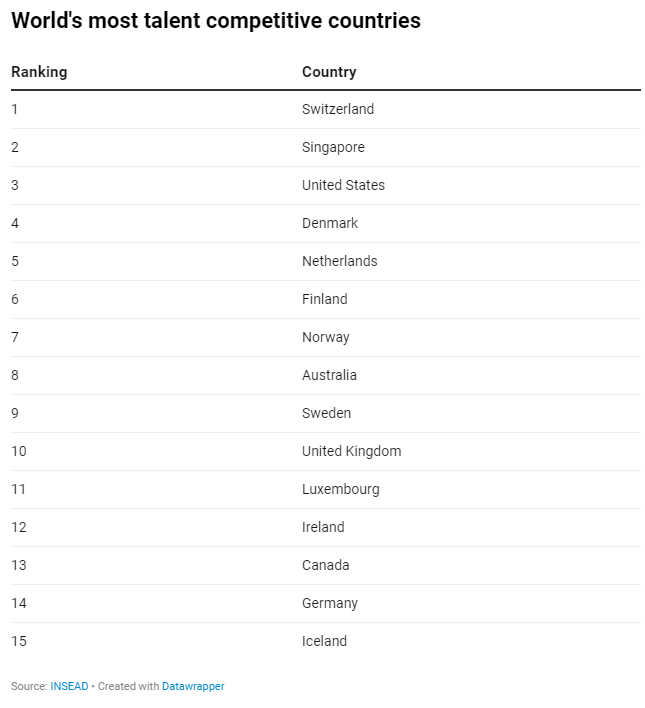
Switzerland has maintained its status as the world’s most talent-competitive country for the tenth consecutive year, as reported in the 2023 Global Talent Competitiveness Index by business school INSEAD. This European nation’s enduring leadership is attributed to its “high levels of social protection” and the quality of its natural environment, according to the annual report.
Singapore continues to secure the second position, owing to its highly educated workforce and innovative economy. The United States has climbed to the third spot after ranking fourth in 2022, showcasing its ability to draw, grow, and retain talent effectively.

The report, which evaluates 134 countries based on their talent competitiveness, highlights a consistent top-ten presence for Switzerland and Singapore over the past decade, positioning them as “clear leaders.”
The report notes an unchanging correlation between a country’s wealth and its talent competitiveness, with richer economies consistently outperforming their less affluent counterparts.
Several other European nations have excelled in the rankings, with Denmark, Netherlands, Finland, and Norway securing the fourth, fifth, sixth, and seventh positions, respectively. Australia secured the eighth spot, while the United Kingdom rounded out the top ten.
China experienced a rise in the rankings, advancing from 47th to 40th place. However, India, despite projections of becoming the third-largest economy by 2030, found itself in 103rd place.
INSEAD attributed this lower ranking to a “slump in business sentiment,” impacting India’s ability to attract both domestic and international talent and resulting in an increased skills mismatch.
As uncertainties and international tensions persist in trade, investment, and politics, the competition among countries for talent is expected to intensify in the next decade. The report anticipates more talent wars, emphasizing that quality of life and sustainability will be crucial assets for countries positioning themselves as talent hubs.
Furthermore, the integration of AI in various industries could exacerbate talent disparities, with unqualified or low-qualified labor facing increased pressure.
Simultaneously, new categories of workers with higher skills may experience heightened competition from algorithms and specialized equipment, adding complexity to the evolving landscape of global talent competitiveness.
